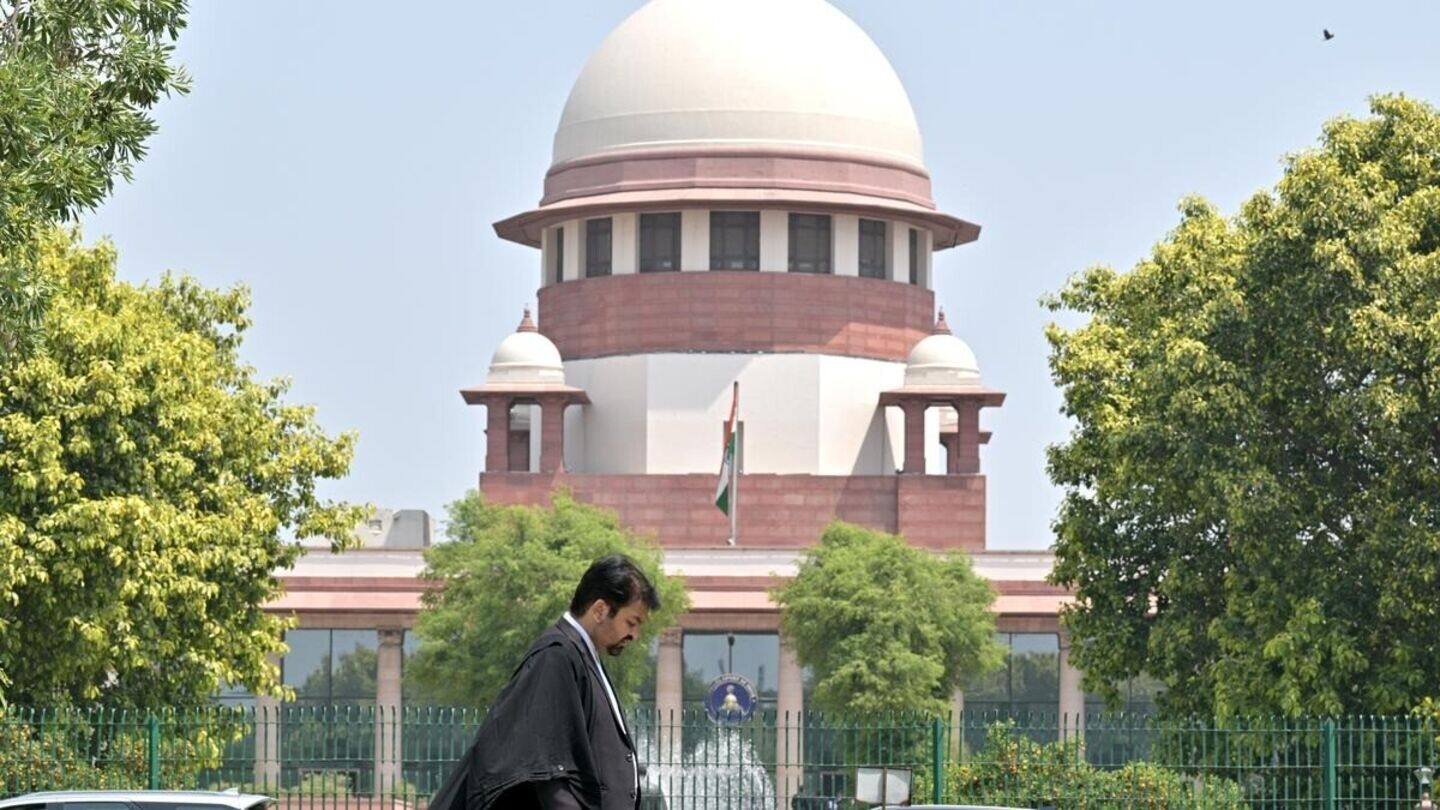
'Show strong...case': SC defers passing interim order on Waqf Act
What's the story
The Supreme Court on Tuesday heard petitions challenging the Waqf (Amendment) Act, 2025. The hearing lasted over three hours and focused on whether interim relief should be granted against the law. It will resume again on Wednesday. At the end of the day, the bench, led by new Chief Justice of India BR Gavai and Justice Augustine George Masih, emphasized that a strong case must be made for any stay on the statute.
Legal arguments
Petitioners argue against non-judicial waqf disputes resolution
"For interim relief, you have to make out....strong and glaring case. Otherwise, presumption of constitutionality will be there," Gavai said. Representing the petitioners, Senior Advocate Kapil Sibal argued that the 2025 amendments were aimed at taking control of waqfs through a non-judicial process. He objected to a provision allowing government officers to decide if Waqf properties encroach on government land. Sibal also said the amendments violate the principle "once a Waqf, always a Waqf," by making registration mandatory for recognition.
Property concerns
Amendments to waqf properties and non-Muslim nominations criticized
"Every religious endowment, not a single person is a Muslim or non-Hindu," Sibal said, to which CJI Gavai responded, "What about Bodh Gaya? All are Hindus." Sibal then replies, "That's because the place of worship is for both Hindus and Buddhists. Bodh Gaya Act says it." Sibal also opposed provisions allowing non-Muslims to be nominated to the Central Waqf Council and State Waqf Boards, arguing it undermines Muslim control over their properties.
Others
Act singles out the Muslim community: Petitioners
Other petitioners' counsels Rajeev Dhavan, Abhishek Manu Singhvi and Huzefa Ahmadi argued that the Act singled out the Muslim community. "It is only the Muslim religion, where property has been dealt with in this way....A client of mine, who is Sikh, says I want to contribute to the waqf and I believe this property should not be taken away....Take that away, and entire secular edifice that your lordships have built time and time again (will be taken away)," Dhavan said.
Government's stance
Centre defends amendments, opposes blanket stay
The Centre defended the Waqf Act, 2025, in a 1,332-page affidavit. It opposed any "blanket stay" on the law, arguing it was constitutionally passed by Parliament. During his turn, Solicitor General Tushar Mehta urged the court to limit proceedings to three issues identified earlier when former CJI Sanjiv Khanna was heading the bench. CJI Gavai agreed, saying that he will have to follow what is on the record. The bench will continue hearing arguments for interim relief on these issues.